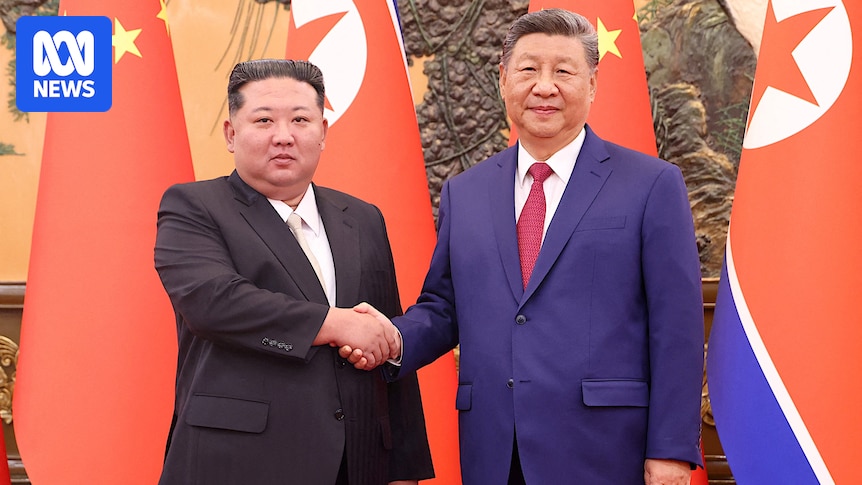
In a rare international appearance, North Korean leader Kim Jong Un met with Chinese President Xi Jinping in Beijing, underscoring the enduring alliance between the two nations. According to Chinese state media, President Xi reassured Kim of North Korea’s significant role in China’s strategic interests during their discussions.
Kim’s visit to China, his most crucial ally, coincided with a massive military parade marking the 80th anniversary of the end of World War II, where he joined Russian President Vladimir Putin alongside Xi. The meeting took place on Thursday evening at Beijing’s Great Hall of the People, where Xi emphasized China’s commitment to maintaining and developing its traditional friendship with North Korea.
Historical Ties and Current Dynamics
The relationship between China and North Korea has deep historical roots, forged during the Korean War in the 1950s. China remains a vital source of diplomatic, economic, and political support for North Korea, an isolated state with nuclear capabilities. Despite this longstanding alliance, recent developments have seen North Korea edging closer to Russia, with the two countries signing a mutual defense agreement last year and North Korean soldiers reportedly participating in the Ukraine conflict.
During their meeting, Xi expressed China’s willingness to enhance high-level exchanges and strategic communication with the Democratic People’s Republic of Korea (DPRK), as reported by the state news agency Xinhua. He highlighted the importance of deepening mutual understanding and cooperation across various fields.
“No matter how the international situation changes, this position will not change,” Xi was quoted as saying, reaffirming China’s steadfast support for North Korea.
Kim Jong Un’s Rare International Foray
Kim Jong Un’s visit to Beijing marks his second reported trip abroad in six years and his first to China since 2019. Accompanied by his daughter, Kim Ju Ae, the North Korean leader’s presence at the parade was notable for being the first time he appeared alongside both Xi and Putin at the same event.
Despite the public display of unity, the relationship between Beijing and Pyongyang remains complex. China’s support is contingent on North Korea maintaining regional stability, a condition that has not always been met. Kim’s international diplomacy peaked around 2018 with high-profile meetings with then-US President Donald Trump and South Korean President Moon Jae-in, but he retreated from the global stage following the collapse of a summit with Trump in Hanoi in 2019.
Implications for Regional Stability
Kim’s recent moves, including declaring North Korea an “irreversible” nuclear state, have further strained relations with South Korea and complicated the geopolitical landscape. Meanwhile, Trump’s past interactions with Kim, which he once described as having “fallen in love,” have left the door open for potential future dialogues, although no concrete steps have been taken.
As Kim’s armored train departed Beijing, as reported by South Korean news agency Yonhap, the world watches closely to see how these renewed affirmations of friendship between China and North Korea will impact regional dynamics. The implications for global security and diplomatic relations remain uncertain, with many experts speculating on the potential shifts in alliances and power balances.
Looking ahead, the international community is likely to scrutinize the evolving relationships between these key players, particularly in light of North Korea’s growing ties with Russia and its ongoing nuclear ambitions. The outcomes of these developments could have far-reaching consequences for peace and stability in the region.







